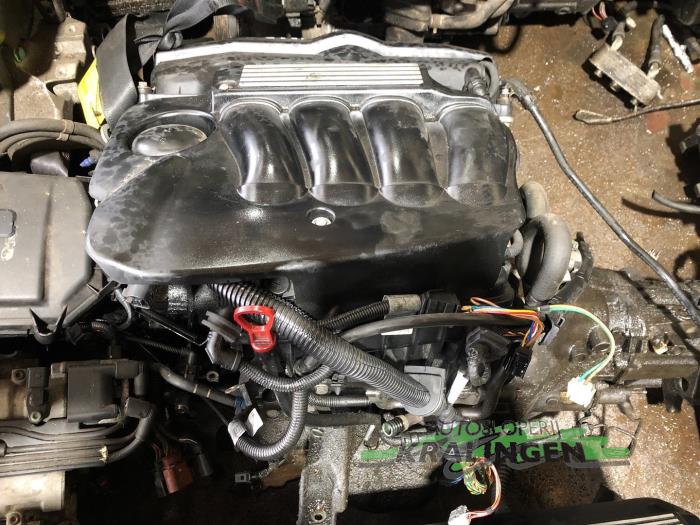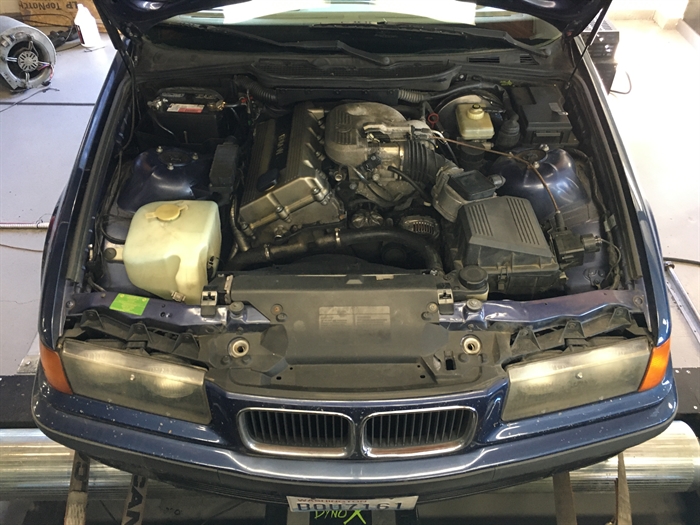Secret Attributes to Look for When Buying an Engine for Automotive Applications
When thinking about the purchase of an engine for automobile applications, several essential features require careful evaluation to ensure optimum performance and functionality. From power and performance capacities to sustain adherence, longevity, and performance to discharges standards, each facet plays an essential role in establishing the engine's suitability for specific auto demands. Cost-effectiveness stays an essential variable in the decision-making process, balancing quality with financial factors to consider. These functions collectively add to the general performance and dependability of the engine, affecting the driving experience and long-lasting satisfaction of the individual.
Power and Performance
When choosing an auto engine, customers focus on power and efficiency to make certain optimum driving experience and performance. The power output of an engine, frequently measured in horsepower (HP) or kilowatts (kW), dictates the acceleration, full throttle, and overall capabilities of a vehicle. Higher power ratings generally result in quicker velocity and far better efficiency, particularly during overtaking or lugging hefty lots. Performance, on the other hand, includes a broader spectrum of characteristics, consisting of fuel effectiveness, emissions, reliability, and total driving characteristics. A well-performing engine not just provides power efficiently but additionally runs smoothly across various rate ranges and driving conditions.
Buyers frequently think about the engine's torque output along with its power score. Torque, measured in pound-feet (lb-ft) or Newton-meters (Nm), shows the engine's rotational force, affecting the vehicle's capability to tow, climb inclines, and accelerate from grinding halt. An equilibrium between power and torque is critical for accomplishing a receptive and flexible driving experience. Furthermore, factors such as engine variation, hybrid, and turbocharging modern technologies play considerable duties in enhancing both power and efficiency degrees. Eventually, picking an engine that offers a powerful mix of power and performance makes certain a efficient and gratifying driving experience. bmw 318ti.
Fuel Efficiency
When assessing auto engine choices,Maximizing fuel performance is a critical factor to consider for consumers. The performance of an engine directly affects operating costs and ecological impact. One essential variable influencing fuel performance is the engine's layout and innovation. Modern engines with attributes like straight gas shot, turbocharging, and variable valve timing can considerably boost fuel effectiveness by boosting burning processes and decreasing power loss. Additionally, the overall weight of the engine and automobile, along with the aerodynamics, play essential functions in determining fuel usage.

Longevity and Dependability
Attaining resilient efficiency and reliable procedure is vital for customers assessing the durability and dependability of automotive engines. When thinking about an engine for auto applications, toughness describes the engine's capability to hold up against wear, stress, and rough operating conditions over a prolonged duration. Reliability, on the other hand, indicates that the engine can consistently do its desired function without unforeseen failures or failures.
Consumers must look for engines built with top notch products and precise engineering to make sure long life. Components such as crankshafts, bearings, and pistons need to be long lasting to take care of the engine's power output without premature wear. Furthermore, engines furnished with innovative air conditioning systems, reliable lubrication, and durable purification mechanisms tend to exhibit greater degrees of dependability.
Routine maintenance and adherence to supplier referrals are likewise essential consider protecting an engine's sturdiness and integrity. By adhering to upkeep schedules, using advised liquids, and dealing with any issues promptly, consumers can make the most of the lifespan and performance of their auto engines. Inevitably, focusing on toughness and dependability in engine option can cause a much more enjoyable possession experience with less unexpected disruptions.
Discharges Compliance
Making certain conformity with discharges regulations is a crucial aspect of reviewing vehicle engines for environmentally mindful consumers. With increasing problems concerning air high quality and ecological effect, strict emissions criteria have been placed in location globally to lower dangerous contaminants launched into the ambience. When buying an engine for automobile applications, it is necessary to consider its discharges compliance to lessen the carbon footprint and abide by lawful demands.
Modern engines are outfitted with sophisticated discharge control technologies such as catalytic converters, exhaust gas recirculation (EGR) systems, and see this site careful catalytic decrease (SCR) to decrease hazardous exhaust gases like nitrogen oxides (NOx), carbon monoxide gas (CARBON MONOXIDE), and hydrocarbons (HC) These systems play an essential duty in guaranteeing that the engine meets the specified discharges criteria and operates within allowable restrictions.

Cost-effectiveness
When taking into consideration auto engine purchases, assessing cost-effectiveness is vital for customers looking for both efficiency and worth. Cost-effectiveness in engine procurement entails even more than simply the first acquisition price. It encompasses the overall expenses associated with maintenance, fuel usage, and prospective repair services over the engine's life expectancy. Selecting an engine that uses an equilibrium in between lasting financial savings and ahead of time expenses can lead to considerable benefits for the consumer.
One trick facet of cost-effectiveness is fuel efficiency. Engines that are designed to make best use of fuel economic situation can bring about considerable cost savings over time, specifically for individuals who drive regularly or over long distances. In addition, thinking about the availability and cost of spare components and servicing can contribute to the general cost-effectiveness of an engine. Guaranteeing that upkeep and repair services are sensible and accessible can protect against unforeseen financial burdens down the line.

Conclusion
In final thought, when acquiring an engine for automotive applications, it is important to take into consideration key attributes such as power and performance, fuel reliability, efficiency and sturdiness, discharges conformity, and cost-effectiveness. These aspects are crucial in making certain that the engine fulfills the needs of the automobile and runs successfully in different driving conditions - bmw 318ti. Making a notified decision based upon these standards will inevitably cause a effective and successful auto engine acquisition
From power and efficiency abilities to sustain performance, longevity, and adherence to discharges criteria, each facet plays a critical their website function in identifying the engine's viability for certain automobile demands. Engines created to run on alternative gas such as electric power, crossbreed systems, or biofuels can provide improved gas economic climate and lower discharges compared to typical gasoline or diesel engines. Customers ought to meticulously think about the gas effectiveness rankings and innovations incorporated into auto engines to make educated investing in decisions that straighten with their priorities for expense savings and sustainability.
When thinking about an engine for auto applications, sturdiness refers to the engine's capacity to endure wear, stress and anxiety, and severe operating problems over an extensive duration.In conclusion, when buying an engine for auto applications, it is essential to take into consideration key functions such as power and efficiency, gas integrity, performance and durability, discharges conformity, and cost-effectiveness.